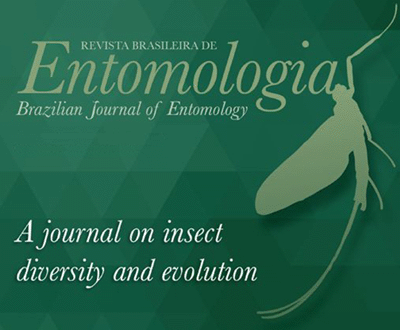Euglossine bee communities in small forest fragments of the Atlantic Forest, Rio de Janeiro state, southeastern Brazil (Hymenoptera, Apidae). Euglossine bees are important pollinators in forests and agricultural areas. Although the structure of their communities is critically affected by anthropogenic disturbances, little is known about these bees in small forest fragments. The objectives of this study were to analyze the composition, abundance, and diversity of euglossine bee species in nine small fragments of different phytophysiognomies of the Atlantic Forest in southeastern Brazil, and to identify the environmental variables that may be related to the species composition of these communities. Males were sampled quarterly from May 2007 to May 2009 with aromatic traps containing methyl cinnamate, vanillin, eucalyptol, benzyl acetate, and methyl salicylate. A total of 1558 males, belonging to 10 species and three genera of Euglossina were collected. The richness ranged from five to seven species per fragment. Euglossa cordata, E. securigera, Eulaema nigrita e E. cingulata were common to all fragments studied. The diversity differed significantly among areas, ranging from H' = 1.04 to H' = 1.65. The precipitation, phytophysiognomy, and altitude had the highest relative importance over the species composition variation. The results presented in this study demonstrate that small forest fragments are able to support populations of euglossine bee species, most of which are widely distributed and reportedly tolerant to open and/or disturbed areas and suggest that the conservation of such areas is important, particularly in areas that are regenerating and in regions with agricultural matrices where these bees can act as important pollinators
Chemical baits; fragmentation; loss habitat; orchid bees; solitary bees










